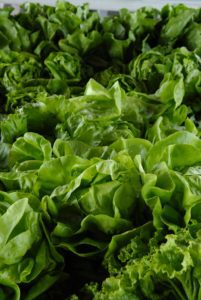Sources of Vitamin K
 Vitamin K is a vital nutrient for blood clotting and bone health that comes in various forms, including vitamin K1 (phylloquinone), vitamin K2 (menaquinone), and a synthetic form called vitamin K3 (menadione). To ensure adequate intake, let’s explore the diverse sources of vitamin K available in the natural world.
Vitamin K is a vital nutrient for blood clotting and bone health that comes in various forms, including vitamin K1 (phylloquinone), vitamin K2 (menaquinone), and a synthetic form called vitamin K3 (menadione). To ensure adequate intake, let’s explore the diverse sources of vitamin K available in the natural world.
Vitamin K1 (phylloquinone) – Plant-Based Nutrient
Vitamin K1 is a naturally occurring form found primarily in leafy green vegetables, which are packed with nutrients and antioxidants. Kale, spinach, and collard greens are among the best sources of vitamin K1. These vegetables can easily be included in salads, soups, and stir-fries, making them a convenient way to incorporate this essential nutrient into your diet. Other green vegetables, such as broccoli, Brussels sprouts, and asparagus, also contain significant amounts of vitamin K1.
In addition to leafy greens, some fruits, like avocado and kiwi, can contribute to your vitamin K1 intake. However, the amount of vitamin K1 in fruits is generally lower than that found in vegetables.
Vitamin K2 (menaquinone) – Fermented Food and Gut Bacteria Nutrient
Vitamin K2, is a form of vitamin K found in fermented foods and produced by bacteria in the intestines. One of the best-known dietary sources of vitamin K2 is natto, a fermented soybean dish popular in Japanese cuisine. Natto is rich in both vitamin K2 and probiotics, making it a nutritious and beneficial food. Other fermented foods, such as aged cheeses, especially those with a strong flavor, can also contain significant amounts of vitamin K2.
In addition to dietary sources, the human body produces vitamin K2 through the activity of gut bacteria. These bacteria synthesize vitamin K2, which can then be absorbed by the intestines. However, factors such as antibiotic use and certain digestive conditions can affect the balance of gut bacteria, potentially impacting the production of vitamin K2.
Vitamin K3 (menadione) – Synthetic Form
Vitamin K3 is a synthetic form of vitamin K produced in laboratories. While vitamin K1 and vitamin K2 are primarily used for dietary supplementation and to support overall health, vitamin K3 is primarily used in medical settings. It is often administered as an injection or oral supplement to treat vitamin K deficiency or certain bleeding disorders.
It is important to note that vitamin K3 can have potential side effects, including hemolytic anemia in newborns. Therefore, its use should be carefully monitored by a healthcare professional. Due to its potential risks and the availability of natural forms of vitamin K, vitamin K3 is not typically recommended as a dietary supplement. If you have concerns about your vitamin K status, it is best to consult with a qualified healthcare provider to discuss appropriate supplementation options.
Closing Thoughts
The bottom line is that vitamin K is a vital nutrient that plays a crucial role in blood clotting and bone health. It is found in a variety of dietary sources, including leafy green vegetables, fermented foods, and certain animal-based products. While most individuals can meet their vitamin K needs through their diet, it is important to consult with a qualified healthcare professional if you have concerns about your vitamin K status or are taking medications that may interfere with its absorption.

Matthew A. Webster, MA, MS, ED.D, LPC
Dr. Matt Webster is a professional educator, nutritionist, and therapist located in the Houston, Texas area. He specializes in couples therapy, sexuality, and maladaptive eating patterns with a focus on the role of nutrition. More About Matt >>
Last modified:









